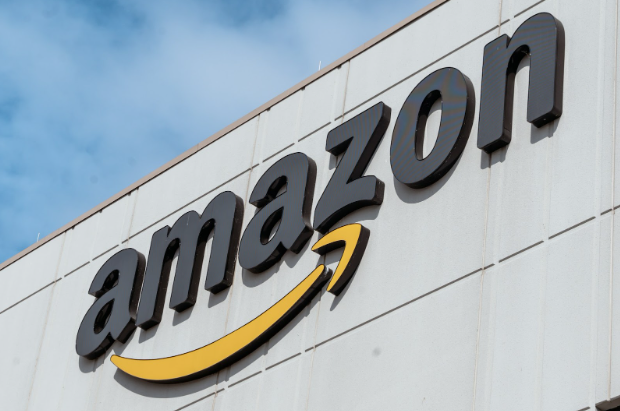To what extent can we truly protect the youth of America? Lawmakers and other government officials have increasingly turned their attention to social media usage, believing it to be a key factor in addressing mental health issues within younger generations. Research has shown strong positive associations between social media use and mental health conditions, with studies finding a 78.3% and 82.6% positive correlation between social media use and anxiety and depression rates, respectively.
North Carolina House Bill (HB) 301, proposed in March, seeks to completely ban social media for children under the age of 14. Additionally, children aged 14 and 15 would require parental consent to maintain a social media account. Sponsors and advocates of the bill believe that separating social media from childhood developmental years will help protect young people’s mental health.
However, the proposed legislation has sparked debate, especially among those who would be directly affected. An anonymous interview with a 7th grader at Davis Drive Middle School offered an opposing perspective, voicing the concerns of young users.
As a dedicated user of TikTok and Snapchat, the student emphasized that the utility of these apps extends far beyond entertainment. “Snapchat has a bunch of safety features that make talking to my friends easier…you can see when someone screen records or screenshots the chat,” they said. This feature provides reassurance to users, alerting them when their personal photos or videos might be at risk of being shared.
Beyond communication, the student also highlighted social media’s educational value. “I learn a lot just from watching random videos on TikTok,” they explained, sharing how the platform often exposes them to videos discussing current events, life hacks and general advice. From conversations about natural disasters like earthquakes and the Los Angeles wildfires to political discussions about presidential party policies, they find that social media often sparks new topics for family discussions. Their feed is also filled with career advice, personal care tips and guidance on preparing for high school.
Yet not everyone agrees that these benefits outweigh the risks. Advocates of the bill argue that social media platforms are designed to be addictive, often at the expense of young users’ well-being. “Over the past decade, social media companies have refined their algorithms to get people scrolling for as long as possible. These apps quickly become addictive, and we want to give children the opportunity to avoid that addiction,” said Representative Neal Jackson, a primary sponsor of HB 301.
While Rep. Jackson acknowledges the convenience and social benefits of these platforms, he remains concerned about the hidden risks, including cyberbullying and harmful content. “We are also concerned about the potential for cyberbullying through these apps as well as material harmful to minors that gets posted on social media apps,” he stated. Supporting his concern, studies from 2007 to 2023 show that around 31% of children from elementary to high school have experienced cyberbullying, underscoring the need for protective legislation.
“There often come times when public policy decisions need to be made in order to provide sufficient protections across society,” Rep. Jackson noted. He emphasized the role of parental involvement in managing children’s digital presence, stating, “by requiring age verification and parental consent, the bill keeps parents involved in their child’s digital presence.” Currently, social media platforms lack reliable age verification systems, allowing users to bypass minimum age requirements with ease. Compounding the problem, not all parents have the knowledge or resources to monitor their children’s social media use effectively. Rep. Jackson believes legislative action can serve as a critical safeguard against what he describes as “the pervasively harmful nature of social media.”
Rep. Jackson also addressed concerns about the bill’s potential to limit free speech or access to educational resources and networking opportunities. “On a technical level, this bill does not regulate speech but rather contracts,” he clarified. The restrictions focus on account creation, not content viewing, and the bill is designed to reinforce parental authority over minors’ digital lives. Advocates believe that strengthened parental oversight will reduce children’s exposure to inappropriate content, online predators, and cyberbullying. “Our bill does nothing to restrict bona-fide news organizations or other general informational websites, and we believe the dangers of algorithms used by social media apps currently outweigh any potential networking benefits,” Rep. Jackson added.
The bill would require all social media companies to comply, with enforcement handled by the North Carolina Department of Justice. When asked about ensuring compliance without overregulating businesses, Rep. Jackson argued that the high cost of litigation would likely motivate companies to follow the rules. Under the bill, the NC Department of Justice would be authorized to collect a civil penalty of up to $50,000 per violation, in addition to court and attorney fees. “I believe these regulations are not burdensome to these businesses, but are actually quite reasonable considering the influence social media has,” he said.
The main objective of North Carolina HB 301 is to support the success and well-being of younger and future generations. Alongside this bill, Rep. Jackson revealed that legislation restricting cell phone use in public schools is also under consideration within both chambers of the General Assembly. Advocates of both of these bills believe that cell phones and social media may be the roots for mental health issues within the youth, and aim to divert focus from reliance on digital communication.










































































